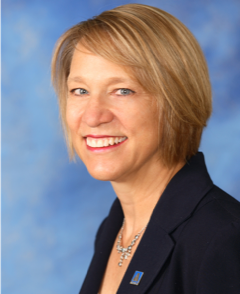Second Homes & 1031 Exchanges
...who wants to waste $30k and a couple years fighting the IRS...?
Owners of second homes wanting to save taxes with a 1031 exchange face very strict IRS regulations. If the second home was never rented out, the IRS won't even allow a 1031 exchange. Unsuccessfully "trying to rent the property" is no longer allowed, either. Leaving it unrented for two years because you're charging too much, too picky, or can't find a renter will cost you a lot of time, effort and dollars fighting the IRS (and who wants to waste $30k and a couple years fighting the IRS?). Significant time requirements also exist for the owner to convert their second home into rental property prior to any sale before doing a 1031 tax deferred exchange. Your second home "converts" into rental property when you rent it for the amount of time the law specifies.
A safe strategy to convert the second home into an investment property is to rent it out at fair market value for at least 24 months prior to the sale and exchange of the property. The owner rents out the second home for a minimum of 14 days per year at fair market value, while limiting their own personal use to less than 14 days per year. They can also limit their personal use to less than 10% of the number of days that the property is rented at fair market value during each year. This means you can enjoy your 1031 property for personal use (vacation, travel, lodging, family, etc.), not exceeding 14 days if you rent it for more than 14 days in a year at FMV. If you want to use it a 15th day, it would have to be rented for 150 days (15 = 10% of 150) to remain eligible as 1031 exchange property. You can max-out your personal use time at 33 days in a year if you successfully rent it for 332 days, (33 < 10% of 332, and 33+332 = 365 days).
The IRS also has very specific requirements regarding personal-use if the property is used by the owner for any part of a day. This includes the owner who has an interest in the second home or vacation property as a tenant-in-common interest. Furthermore, use by any member of the owner's family counts as personal use days, unless the second home or vacation property is rented out to those family members as a full time principal residence, and at a fair market rent. Another IRS requirement specifies that if the owner rents out the vacation or second home property at less than fair market value, the days rented are considered personal use days.
Lastly, another rule defines it as "personal use" if two different owners use each other's second homes for less than fair market rent, even if the houses aren't rentals. Basically, "no trading houses." For instance: if your second home is in Aspen, and you "trade use" with your Aspen neighbor so you can stay 28 days in the summer, the property becomes ineligible for 1031 treatment. To remain 1031-eligible you have to have a valid lease, pay FMV rent for your neighbor's property and collect FMV rent for your property. According to the IRS, "fair market rent" is determined based on all of the facts and circumstances that exist when the rental agreement is entered into -- all rights and obligations of the parties to the rental agreement are taken into account.
Some taxpayer-usage is not considered "personal use" if the taxpayer is engaged in repair, upkeep and annual maintenance on a substantially full time basis for any day. This means you or a contractor can be in the house fixing stuff eight hours a day and call it a "maintenance day" if you document the repairs, time and materials used. The tax-payer must be ready to prove that actual work was done.
In summary, an owner can take their second home or a vacation home and rent it for 14 days a year at fair market value for two years and then exchange out of it. Remember that the owner's personal use must be limited during these two years to under 14 days a year, or 10% the time it's rented to others at FMV. The other alternative is to rent the property at fair market value as a principal residence to either a related or unrelated third party for two or more years prior to the 1031 exchange.
With so many intricate IRS rules regarding vacation and second home properties, always check with your tax advisor before engaging in any 1031 exchange involving a vacation or second home. You can also call your friendly and knowledgeable 1031 Exchange Experts for more information, at 303-694-0204.
Mary Lou Schwab is a CPA and consultant with the 1031 Exchange Experts' LLC, an independent national qualified intermediary. With over 30 years of real estate tax and escrow experience, her expertise with 1031 tax regulations and the structuring of complex exchanges for partnerships (including reverse exchanges and construction improvement exchanges) has aided her in her own real estate investments. She can be reached at MaryLou@expert1031.com, or nationwide, toll free at 866-694-0204.






Add new comment